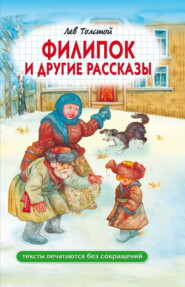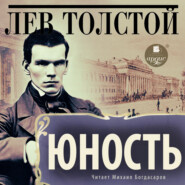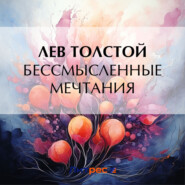По всем вопросам обращайтесь на: info@litportal.ru
(©) 2003-2025.
✖
The Kingdom of God is Within You; What is Art?
Настройки чтения
Размер шрифта
Высота строк
Поля
In the vegetable and animal kingdoms a laboratory for the production of food has been arranged, such as can be surpassed by no professors, and to enjoy the fruits of this laboratory, and to participate in it, man has only to yield to that ever joyful impulse to labor, without which man's life is a torment. And lo and behold! the scientists of our times, instead of employing all their strength to abolish whatever hinders man from utilizing the good things prepared for him, acknowledge the conditions under which man is deprived of these blessings to be unalterable, and instead of arranging the life of man so that he might work joyfully and be fed from the soil, they devise methods which will cause him to become an artificial abortion. It is like not helping a man out of confinement into the fresh air, but devising means, instead, to pump into him the necessary quantity of oxygen and arranging so that he may live in a stifling cellar instead of living at home.
Such false ideals could not exist if science were not on a false path.
And yet the feelings transmitted by art grow up on the bases supplied by science.
But what feelings can such misdirected science evoke? One side of this science evokes antiquated feelings, which humanity has used up, and which, in our times, are bad and exclusive. The other side, occupied with the study of subjects unrelated to the conduct of human life, by its very nature cannot serve as a basis for art.
So that art in our times, to be art, must either open up its own road independently of science, or must take direction from the unrecognized science which is denounced by the orthodox section of science. And this is what art, when it even partially fulfils its mission, is doing.
It is to be hoped that the work I have tried to perform concerning art will be performed also for science – that the falseness of the theory of science for science's sake will be demonstrated; that the necessity of acknowledging Christian teaching in its true meaning will be clearly shown, that on the basis of that teaching a reappraisement will be made of the knowledge we possess, and of which we are so proud; that the secondariness and insignificance of experimental science, and the primacy and importance of religious, moral, and social knowledge will be established; and that such knowledge will not, as now, be left to the guidance of the upper classes only, but will form a chief interest of all free, truth-loving men, such as those who, not in agreement with the upper classes, but in their despite, have always forwarded the real science of life.
Astronomical, physical, chemical, and biological science, as also technical and medical science, will be studied only in so far as they can help to free mankind from religious, juridical, or social deceptions, or can serve to promote the well-being of all men, and not of any single class.
Only then will science cease to be what it is now, – on the one hand a system of sophistries, needed for the maintenance of the existing worn-out order of society, and, on the other hand, a shapeless mass of miscellaneous knowledge, for the most part good for little or nothing, – and become a shapely and organic whole, having a definite and reasonable purpose comprehensible to all men; namely, the purpose of bringing to the consciousness of men the truths that flow from the religious perception of our times.
And only then will art, which is always dependent on science, be what it might and should be, an organ co-equally important with science for the life and progress of mankind.
Art is not a pleasure, a solace, or an amusement; art is a great matter. Art is an organ of human life, transmitting man's reasonable perception into feeling. In our age the common religious perception of men is the consciousness of the brotherhood of man – we know that the well-being of man lies in union with his fellow-men. True science should indicate the various methods of applying this consciousness to life. Art should transform this perception into feeling.
The task of art is enormous. Through the influence of real art, aided by science guided by religion, that peaceful coöperation of man which is now obtained by external means – by our law-courts, police, charitable institutions, factory inspection, etc. – should be obtained by man's free and joyous activity. Art should cause violence to be set aside.
And it is only art that can accomplish this.
All that now, independently of the fear of violence and punishment, makes the social life of man possible (and already now this is an enormous part of the order of our lives) – all this has been brought about by art. If by art it has been inculcated how people should treat religious objects, their parents, their children, their wives, their relations, strangers, foreigners; how to conduct themselves to their elders, their superiors, to those who suffer, to their enemies, and to animals; and if this has been obeyed through generations by millions of people, not only unenforced by any violence, but so that the force of such customs can be shaken in no way but by means of art – then, by the same art, other customs, more in accord with the religious perception of our time, may be evoked. If art has been able to convey the sentiment of reverence for images, for the eucharist, and for the king's person; of shame at betraying a comrade, devotion to a flag, the necessity of revenge for an insult, the need to sacrifice one's labor for the erection and adornment of churches, the duty of defending one's honor or the glory of one's native land – then that same art can also evoke reverence for the dignity of every man and for the life of every animal; can make men ashamed of luxury, of violence, of revenge, or of using for their pleasure that of which others are in need; can compel people freely, gladly, and without noticing it, to sacrifice themselves in the service of man.
The task for art to accomplish is to make that feeling of brotherhood and love of one's neighbor, now attained only by the best members of society, the customary feeling and the instinct of all men. By evoking, under imaginary conditions, the feeling of brotherhood and love, religious art will train men to experience those same feelings under similar circumstances in actual life; it will lay in the souls of men the rails along which the actions of those whom art thus educates will naturally pass. And universal art, by uniting the most different people in one common feeling, by destroying separation, will educate people to union, will show them, not by reason, but by life itself, the joy of universal union reaching beyond the bounds set by life.
The destiny of art in our time is to transmit from the realm of reason to the realm of feeling the truth that well-being for men consists in being united together, and to set up, in place of the existing reign of force, that kingdom of God, i. e. of love, which we all recognize to be the highest aim of human life.
Possibly, in the future, science may reveal to art yet newer and higher ideals, which art may realize; but, in our time, the destiny of art is clear and definite. The task for Christian art is to establish brotherly union among men.
APPENDIX I
This is the first page of Mallarmé's book, "Divagations": —
LE PHÉNOMÈNE FUTUR
Un ciel pâle, sur le monde qui finit de décrépitude, va peut-être partir avec les nuages: les lambeaux de la pourpre usée des couchants déteignent dans une rivière dormant à l'horizon submergé de rayons et d'eau. Les arbres s'ennuient, et, sous leur feuillage blanchi (de la poussière du temps plutôt que celle des chemins) monte la maison en toile de Montreur de choses Passées: maint réverbère attend le crépuscule et ravive les visages d'une malheureuse foule, vaincue par la maladie immortelle et le péché des siècles, d'hommes près de leurs chétives complices enceintes des fruits misérables avec lesquels périra la terre. Dans le silence inquiet de tous les yeux suppliant là-bas le soleil qui, sous l'eau, s'enfonce avec le désespoir d'un cri, voici le simple boniment: "Nulle enseigne ne vous régale du spectacle intérieur, car il n'est pas maintenant un peintre capable d'en donner une ombre triste. J'apporte, vivante (et préservée à travers les ans par la science souveraine) une Femme d'autrefois. Quelque folie, originelle et naïve, une extase d'or, je ne sais quoi! par elle nommé sa chevelure, se ploie avec la grâce des étoffes autour d'un visage qu' éclaire la nudité sanglante de ses lèvres. A la place du vêtement vain, elle a un corps; et les yeux, semblables aux pierres rares! ne valent pas ce regard qui sort de sa chair heureuse: des seins levés comme s'ils étaient pleins d'un lait éternel, la pointe vers le ciel, les jambes lisses qui gardent le sel de la mer première." Se rappelant leurs pauvres épouses, chauves, morbides et pleines d'horreur, les maris se pressent: elles aussi par curiosité, mélancoliques, veulent voir.
Quand tous auront contemplé la noble créature, vestige de quelque époque déjà maudite, les uns indifférents, car ils n'auront pas eu la force de comprendre, mais d'autres navrés et la paupière humide de larmes résignées, se regarderont; tandis que les poètes de ces temps, sentant se rallumer leur yeux éteints, s'achemineront vers leur lampe, le cerveau ivre un instant d'une gloire confuse, hantés du Rythme et dans l'oubli d'exister à une époque qui survit à la beauté.
THE FUTURE PHENOMENON – by Mallarmé
A pale sky, above the world that is ending through decrepitude, going, perhaps, to pass away with the clouds: shreds of worn-out purple of the sunsets wash off their color in a river sleeping on the horizon, submerged with rays and water. The trees are weary and, beneath their foliage, whitened (by the dust of time rather than that of the roads), rises the canvas house of "Showman of things Past." Many a lamp awaits the gloaming, and brightens the faces of a miserable crowd vanquished by the immortal illness and the sin of ages, of men by the sides of their puny accomplices pregnant with the miserable fruit with which the world will perish. In the anxious silence of all the eyes supplicating the sun there, which sinks under the water with the desperation of a cry, this is the plain announcement: "No sign-board now regales you with the spectacle that is inside, for there is no painter now capable of giving even a shadow of it. I bring living (and preserved by sovereign science through the years) a Woman of other days. Some kind of folly, naïve and original, an ecstasy of gold, I know not what, by her called her hair, clings with the grace of some material round a face brightened by the blood-red nudity of her lips. In place of vain clothing, she has a body; and her eyes, resembling precious stones! are not worth that look, which comes from her happy flesh: breasts raised as if full of eternal milk, the points toward the sky; the smooth legs, that keep the salt of the first sea." Remembering their poor spouses, bald, morbid, and full of horrors, the husbands press forward: the women, too, from curiosity, gloomily wish to see.
When all shall have contemplated the noble creature, vestige of some epoch already damned, some indifferently, for they will not have had strength to understand, but others, broken-hearted, and with eyelids wet with tears of resignation, will look at each other; while the poets of those times, feeling their dim eyes rekindled, will make their way toward their lamp, their brain for an instant drunk with confused glory, haunted by Rhythm, and forgetful that they exist at an epoch which has survived beauty.
APPENDIX II[128 - The translations in Appendices I., II., and IV., are by Louise Maude. The aim of these renderings has been to keep as close to the originals as the obscurity of meaning allowed. The sense (or absence of sense) has therefore been more considered than the form of the verses.]
No. 1
The following verses are by Vielé-Griffin, from page 28 of a volume of his Poems: —
OISEAU BLEU COULEUR DU TEMPS
1
Sait-tu l'oubli
D'un vain doux rêve,
Oiseau moqueur
De la forêt?
Le jour pâlit,
La nuit se lève,
Et dans mon cœur
L'ombre a pleuré;
2
O chante-moi
Ta folle gamme,
Car j'ai dormi
Ce jour durant;
Le lâche emoi
Où fut mon âme
Sanglote ennui
Le jour mourant…
3
Sais-tu le chant
De sa parole
Et de sa voix,
Toi qui redis
Dans le couchant
Ton air frivole
Comme autrefois
Sous les midis?
4
O chante alors
La mélodie
De son amour,
Mon fol espoir,
Parmi les ors
Et l'incendie
Du vain doux jour
Qui meurt ce soir.

















